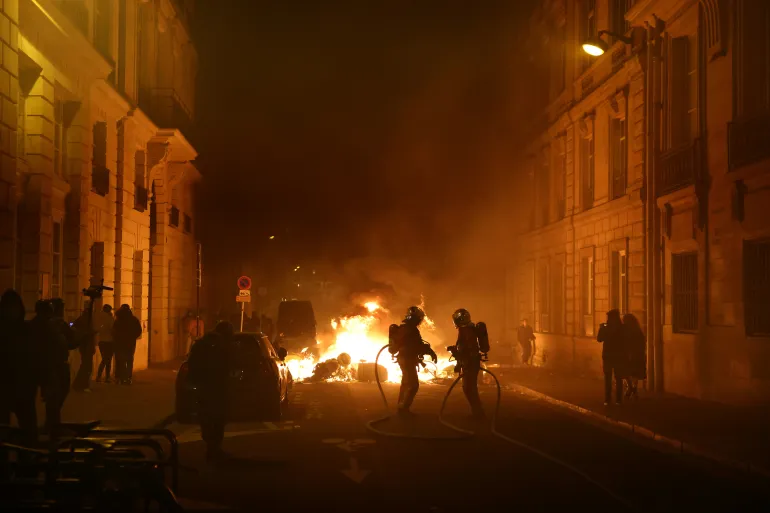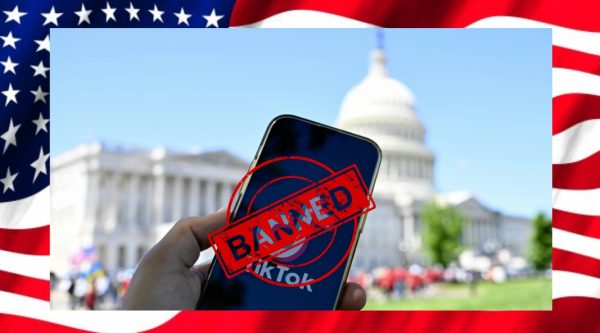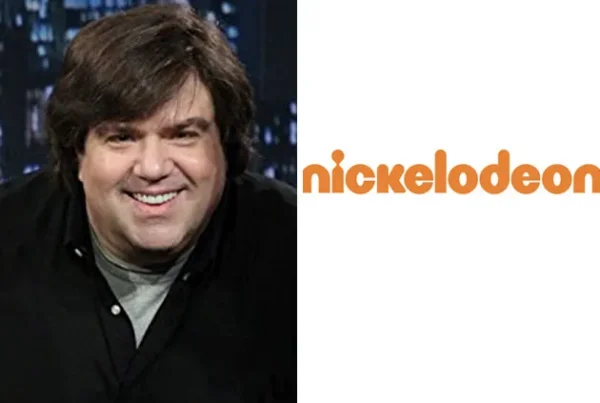Paris on Fire: Pension Reform Protests
Paris is burning—literally. According to an American witness in a recent CNN report, “I was walking home from dinner in rue du Cirque when I saw the cars on fire. At Rue Royale, they were hurling tear gas. To get to my hotel in the Rue des Capucines, the street was on fire from both ends! Is Paris burning? In my street YES!! Now in my room I can smell smoke.” As Paris burns and millions take to the street, the world watches.
This fire was set by the President of the French Republic. Emmanuel Macron, a French politician and banker, was elected as the President of France in 2017. Macron became the youngest head of state in France since Napoleon I. It is important to recognize his history in economics and finance, as this will become relevant later in the article. In fact, in 2004, Macron initiated his career in the public service as an inspector of finance for the French Ministry of Economy and Finance. In 2022, he won the presidential election again, becoming the first French president in the last twenty years to win a second term. Currently, he is the founder and leader of the “Renaissance” political party, a central political party in France—although it would be considered more liberal on our contemporary American political spectrum.
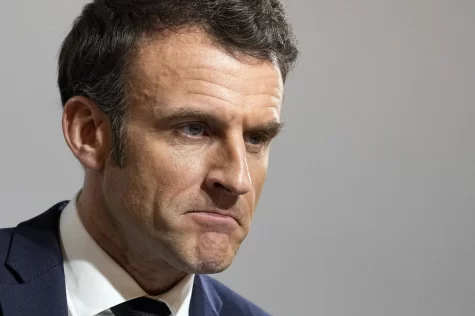
Today, France fights back against the young and ambitious leader. Parisians hurl cobblestones that they ripped from pavements toward the police. Law enforcement authorities retaliate with tear gas and water cannons. Protesters set fire to wooden construction fencings and piles of garbage around the city that have not been collected over the last week due to an ongoing strike by waste disposal workers. This situation in Paris is marked by violent confrontations between the police and protesters, with the latter resorting to extreme measures to express their serious grievances. Of course, only some of the protests throughout France take such turns for the worse.
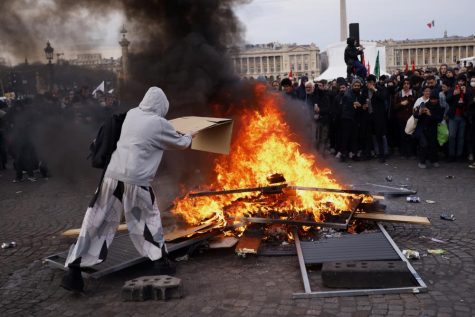

So, what exactly did President Macron do? Macron’s decision to bypass parliament and enforce his controversial pension reform has exposed him to be a resolute but weakened leader, eliciting a fierce backlash from opposition legislators and demonstrators emboldened by his uncompromising stance. His reform is quite simple: Macron seeks to raise the national retirement age from 62 to 64. In the face of an anticipated parliamentary defeat for this retirement reform proposal, the French president and his steadfast ally, Prime Minister Elisabeth Borne, opted to resort to a contentious constitutional mechanism, namely Article 49.3, in order to sidestep the voting process. So, on March 16, 2023, President Emmanuel Macron enacted his bill.
To fully grasp the significance of this issue for the French, it’s essential to have a comprehensive understanding of their culture. Although it may seem like a minor discrepancy of only two years, delving deeper into the French cultural context sheds light on why this is such a significant matter. First off, it should be noted that France stands out as having one of the lowest retirement ages in Europe:
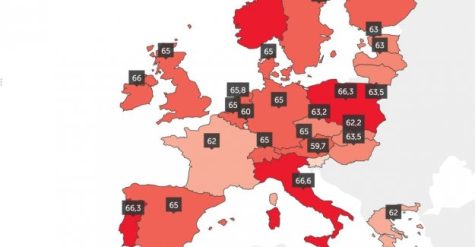
This low retirement age is deeply rooted in French culture and philosophy, which places heavy emphasis on leisure time (for those interested in such topics, I highly recommend taking A.P. French Language and Culture with Dr. Altman). This value is reflected in the French work-life balance, which emphasizes the importance of taking breaks and enjoying hobbies, family time, and social activities. The French also value the art of living, or “l’art de vivre,” which refers to the enjoyment of life’s pleasures, such as good cheese, wine, fashion, and art. They believe that life should be lived to the fullest, and that one should take the time to savor the joys of life. This cultural attitude toward leisure is also reflected in the French labor laws, which provide for a minimum of five weeks of paid vacation per year and limit the maximum working hours per week. These policies are designed to ensure that French workers have a healthy work-life balance and ample time to enjoy their leisure time.
These same values are represented in the unequivocal slogan that millions of protesters across France have come to share and fight for: “Work less to live more.” These protesters see Macron’s changes not just as an attempt to overhaul the pension system, but also as an attempt to overhaul the values of France at her core. To a lot of French individuals, this reform is seen as a deceitful tactic of the wealthy, and ergo viewed with suspicion.
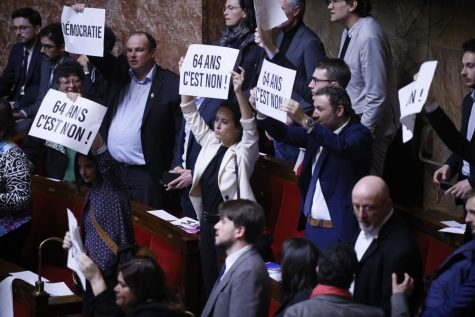
So, why does Monsieur le Président find it necessary to impose such reform? Macron cites the growing life expectancy and the lower birth rates in France as reasons. Macron proposes that increasing the retirement age would lead workers to contribute more funds to the system, which he claims is headed for a deficit. The president views the pension alterations as a key aspect of his plan to enhance the competitiveness of the French economy. In addition, the proposed change would necessitate 43 years of employment to qualify for a complete pension.
When looking at the French political spectrum, Macron’s political reform faces resistance from both sides. Both Marine Le Pen’s far-right “National Rally” party and Jean-Luc Mélenchon’s far-left “La France Insoumise” party booed and shouted “resignation” when it was announced that the pension reform would be pushed through parliament without a vote. In response to this announcement that enacted Article 49.3 of the French Constitution, lawmakers in parliament filed a no-confidence vote. This is once crucial aspect of Article 49.3 that allows lawmakers to file a no-confidence vote against Macron’s government within 24 hours. This was lawmakers’ last attempt to stop the unpopular reform from becoming law. Macron’s government survived the no-confidence vote, with only 278 lawmakers voting in favor out of the 287 required to pass. If the motion had won over 287 votes, then Prime Minister Élisabeth Borne and her cabinet would have had to resign, but Macron would have remained president. Despite the unpopularity and controversy surrounding his reform, President Macron has successfully turned his bill into law.



